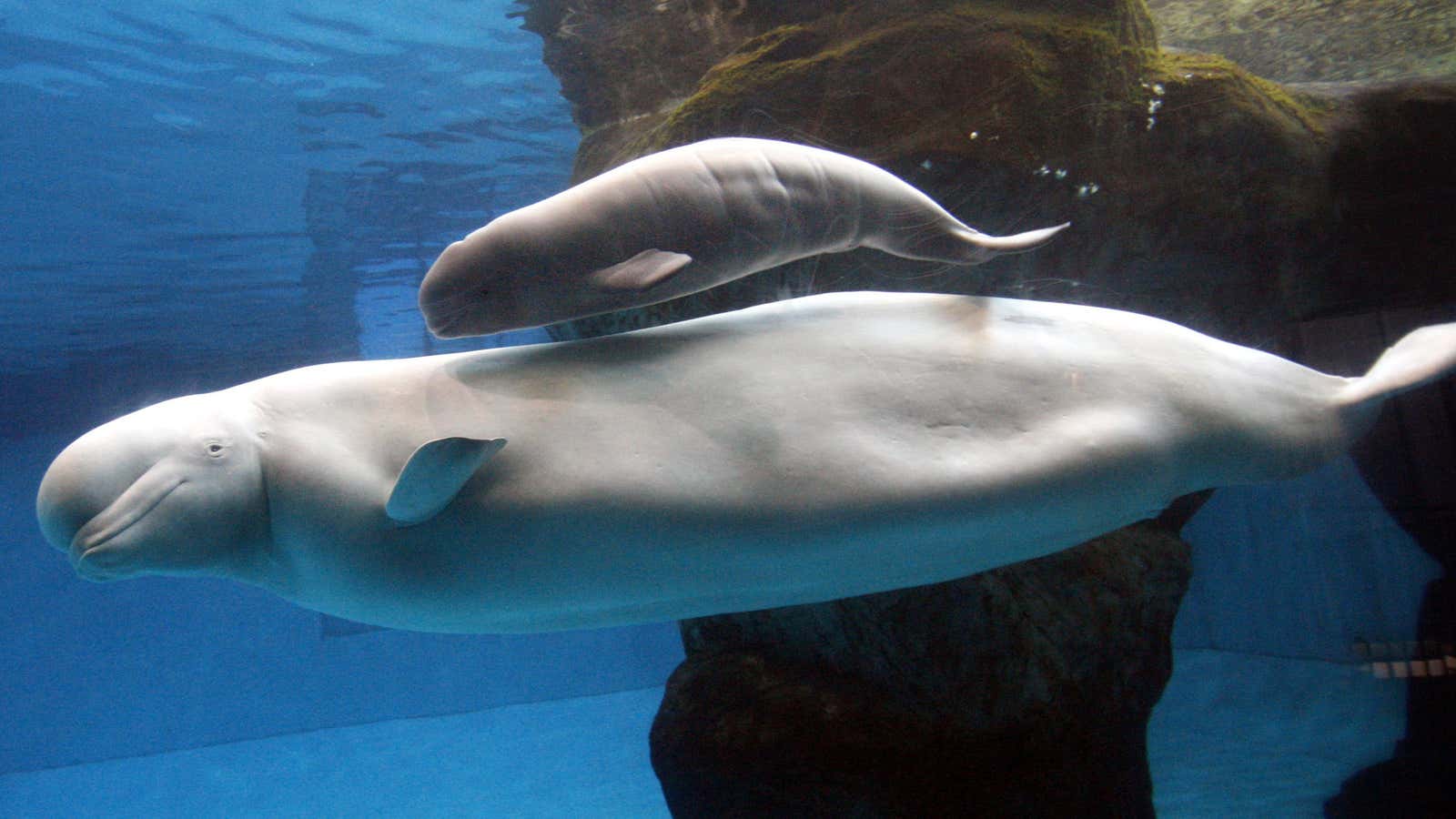China is celebrating the fact a beluga calf born in captivity has lived past two months, but local activists say the baby likely won’t make it to adulthood.
China’s recent growing appetite of putting sea animals on display has encouraged businesses keeping animals in captivity, especially as animals naturally living in cold weather and icy waters, like the beluga whale, have become key attractions to visitors.
The calf, the first in the country to survive past two months, was born in a aquarium in Changsha, the capital of China’s central Hunan province on Sept. 22. “It’s extremely difficult for a mother beluga to conceive and deliver a baby in an artificial feeding environment,” said Wang Wei, a veterinarian with the park. “We hope she can live happily here.”
But activists don’t have high prospects even though the park says it’s importing cetacean formula milk powder and mashed fish costing more than 1000 yuan ($145) per day because mother has no experience nursing.
“It’s unlikely the calf will make it to 24 months because the lack of mother milk in its immune system can be detrimental,” a representative from China Cetacean Alliance (CCA), a nongovernmental organization that has been tracking China’s cetacean imports since 2014, told Quartz.
It is not uncommon to see whales born in captivity living a short time. The Georgia Aquarium saw two deaths, including a one-month-old beluga last June and a six-day-old one in 2012, while a three-week-old calf died last July in SeaWorld San Antonio.
The lack of natural breeding environment and the deprivation of space contributed to those deaths, CCA added. “If the calf’s mother is taken away from wild too early, or before it has the chance to learn from its mother, then it doesn’t know how to feed her own baby.”
The organization added that aquariums in China only need to give belugas six meters (pdf, p.46) of space, which is not considered enough as adult belugas can grow to four meters long.
